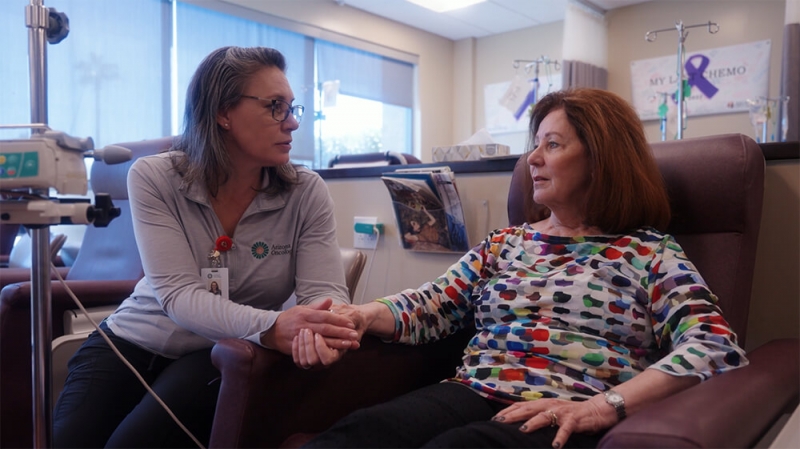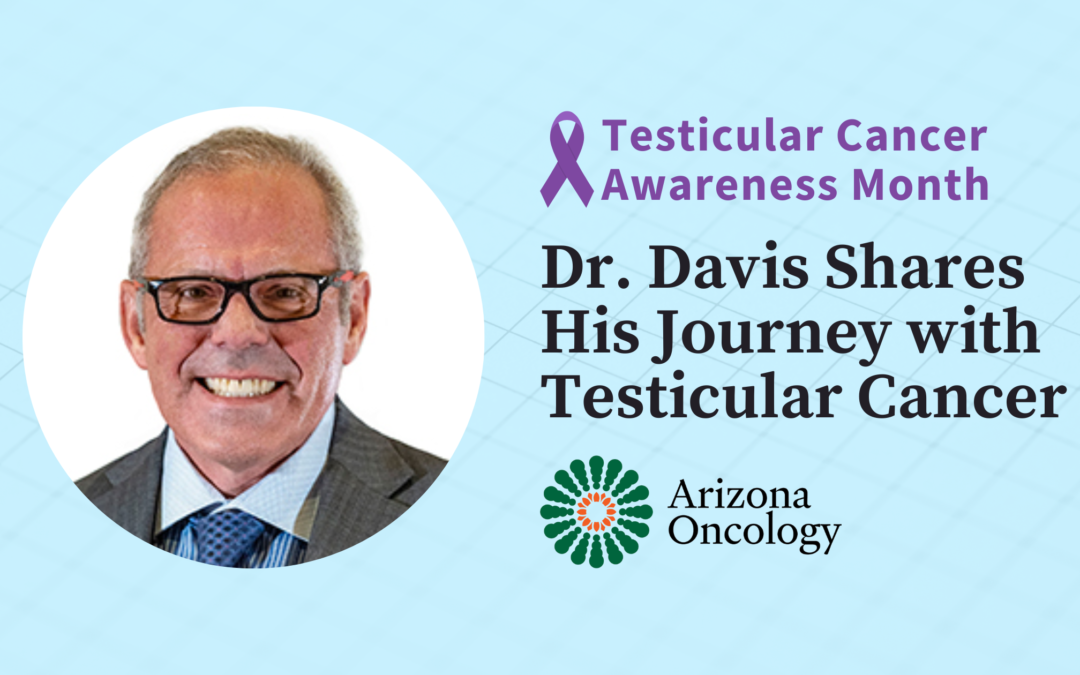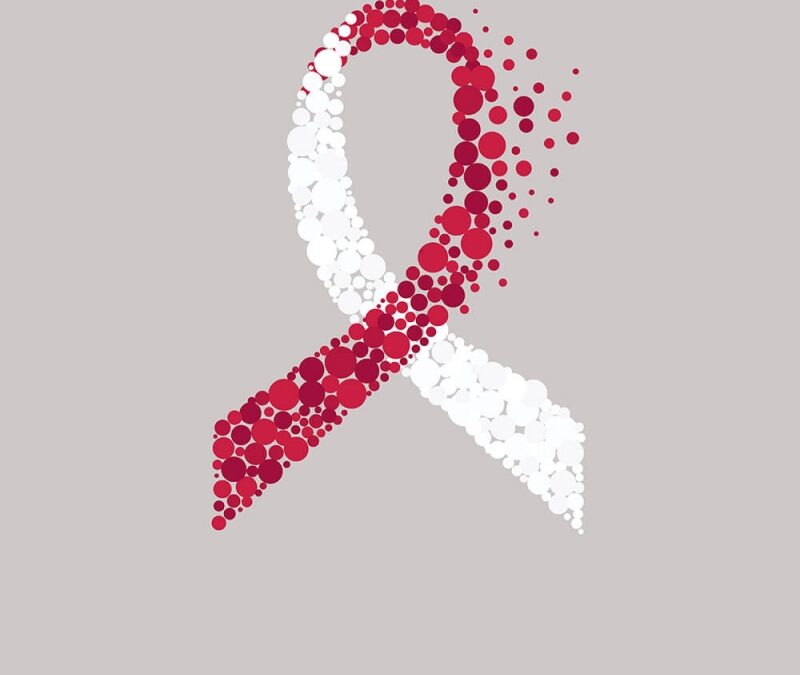Blog

Arizona Oncology Joins National Initiative for Better Cancer Care
Arizona Oncology proudly announces its participation in the Enhancing Oncology Model (EOM), a novel program aimed at improving cancer care. Only 44 oncology practices across the country, including ours, have been selected to take part in this initiative. Backed by the Center for Medicare and Medicaid Innovation (CMMI), the program aligns with the Biden Administration's Cancer Moonshot effort to enhance the cancer treatment experience. What EOM Means for Patients The EOM primarily targets Medicare and Medicaid patients undergoing chemotherapy for seven cancer types: breast...

Deborah’s Cancer Journey: Controlling What You Can Control
“Cancer and the diagnosis has changed my life.” - Deborah, Arizona Oncology patient Arizona Oncology patient, Deborah, recently shared her story with the world in the hopes that others could learn from her experience and be inspired by it. Deborah was diagnosed with advanced stage gynecological cancer. Her oncologist is Dr. Shobhana Talukdar. “I immediately had total trust in her, and I could tell that she cared and she made me at ease. She's such a caring person. I just am so lucky that I was led to her,” Deborah said. “Dee faced her advanced cancer diagnosis with a lot of courage and...

Ways to Minimize Side Effects from Cancer Treatment
Ways to Minimize Side Effects from Cancer Treatment Because of advances in cancer treatment, more and more people can expect to reach remission or to live a long life with cancer. This is wonderful news! However, going through cancer treatment often isn’t easy. Cancer medications and radiation treatments can cause a variety of side effects that can be difficult to deal with. Here are some things you can do at home or with the help of your doctor to minimize side effects from cancer treatment. Appetite Loss. People being treated for cancer often don’t feel hungry. But when you don’t get...

Cancer Immunotherapy: Harnessing the Power of the Immune System to Fight Cancer
In recent years, cancer immunotherapy has emerged as a groundbreaking approach in the field of oncology, revolutionizing the way we think about cancer treatment. By leveraging the body's own immune system, this innovative therapeutic strategy has shown remarkable potential in the fight against cancer. Let’s delve into the realm of cancer immunotherapy, exploring how it works, its effectiveness, and some of the most significant advancements in this field over the past decade. What is Immunotherapy? Cancer immunotherapy encompasses a diverse range of treatments designed to stimulate...

Prostate Cancer Risks, Signs, Symptoms and Screening
Prostate cancer is the most commonly diagnosed cancer in men after skin cancer. One in nine men will be diagnosed with prostate cancer in their lifetime. Learning the facts about the risk factors, screenings, and symptoms can help you understand your risks and create a personal medical plan. Risk Factors of Prostate Cancer Prostate cancer typically has nothing to do with your lifestyle or personal habits. However, there are certain indicators that could signal you are at an increased risk of getting the disease. If you have a combination of risk factors, your doctor may...

Clinical Trials for Cancer Patients: What You Need to Know
Cancer is a complex and challenging disease that requires continuous research to develop new treatments and improve patient outcomes. Clinical trials play a crucial role in this process as they provide a way to test the safety and effectiveness of new cancer therapies. Clinical trials also offer hope to patients and families who are dealing with this disease. If you are considering taking part in a cancer clinical trial, here are some things you should know. What are clinical trials? Clinical trials are research studies that involve human participants to evaluate new treatments, drugs,...

Men and Women Need to Get Screened for Oral, Head and Neck Cancers
April is Oral, Head & Neck Cancer Awareness Month and Arizona Oncology, a practice in The US Oncology Network, would like to remind both men and women to speak with their healthcare providers about getting screened for the disease. Oral cavity and oropharyngeal cancers are more than twice as common in men as in women and occur most often in the tongue, tonsils and oropharynx, gums, floor of the mouth, and other parts of the mouth. It is estimated that approximately 39,500 people will get oral cavity or oropharyngeal cancer in the United States this year, and an estimated 7,500 will lose...

One of Our Own, Dr. Marshall Davis, Shares His Journey With Testicular Cancer
April is Testicular Cancer Awareness Month. Approximately 1 in 250 men will develop testicular cancer at some point during their lifetime, and Caucasian men are four to five times more likely to develop testicular cancer than African-American and Asian-American men. The average age of a man diagnosed with testicular cancer is 33. Approximately 6% of cases occur in children and teens, and about 8% occur in men over 55. If detected early, testicular cancer is one of the most curable forms of cancer. With today’s treatments, testicular cancer survival rates are high, with 95% of...

Summer Travel with Cancer
Many patients worry about cancer getting in the way of daily life, which may include their summer vacation or travel plans. Initially, yes, a cancer diagnosis can put certain things on hold – but in most cases, it’s only temporary. Once your cancer treatment plan is in place, resuming everyday activities often becomes more manageable – even when it involves going on a trip. Traveling with cancer may involve some extra planning, but there are ways to help it be less stressful and more enjoyable. Here are some tips to get you started so you can enjoy the travel season. Preparing for...

What are Head and Neck Cancers?
April is Head and Neck Cancer Awareness Month. Head and neck cancers are a group of different types of cancers that develop in the throat, nose, mouth, sinuses, or larynx. Types of Head and Neck Cancer Head and neck cancers include: Laryngeal and Hypopharyngeal Cancer. Laryngeal cancer develops in the voice box, or larynx. Hypopharyngeal cancer develops in the lower throat. Oral Cavity and Oropharyngeal Cancer. Oral Cavity cancers occur in the mouth and tongue. Oropharyngeal cancer starts in the middle part of the throat, behind the mouth. Nasopharyngeal Cancer. Nasopharyngeal...


